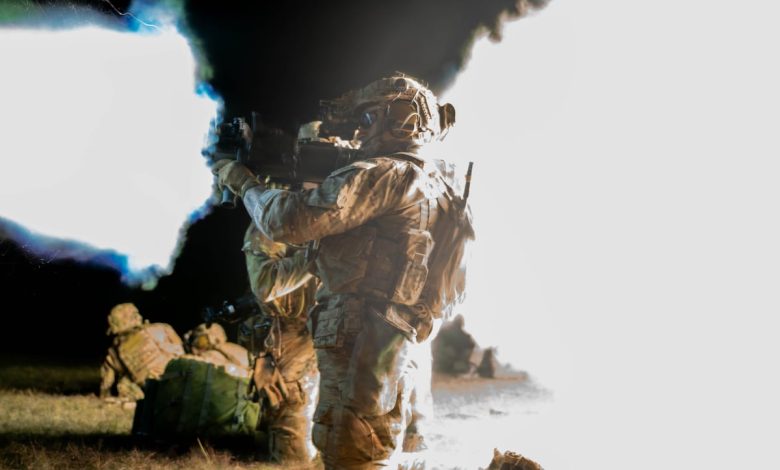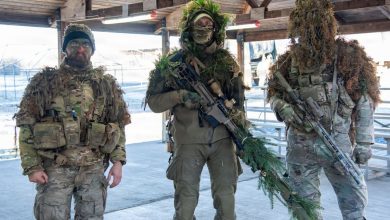TBI research neglects special operations forces, report says

Research into traumatic brain injuries has neglected the effect of TBI on special operations forces, according to a new study by a U.S. think tank.
“There is limited research focused on TBI among SOF, although this population faces a higher risk of blast exposure and TBI,” according to a report published by the Rand Corporation earlier this month. Special operations personnel “experience higher rates of blast exposure and repetitive neurological stress in both combat and training compared with other service members,” the report’s authors wrote.
The report reviewed TBI studies from 2015 to 2025, with a focus on the SOF community. Out of 480 research papers on TBI that Rand reviewed, Army and Marine Corps personnel were the most frequently studied populations, according to the report, and “only seven papers focused solely on SOF, and 14 included SOF in mixed samples.”
In addition to special operations forces, there has been little research into identifying and treating TBI among airmen, sailors, National Guard troops and reservists, “even though these groups face high risks,” the report notes.
More than 500,000 personnel have been diagnosed with a service-related TBI since 2000, according to the Department of Defense. More than $2.1 billion in federal and private funds have been spent on TBI research since 2015, the report estimated.
Nonetheless, the report found numerous problems with existing research into TBI. For example, studies have tended to focus on diagnosing TBI rather than what specific conditions caused it, such as “correlations between injury and blast pounds per square inch, soldier positioning, or the source of the blast (e.g., breaching versus shoulder-mounted artillery),” the report states.
In addition to Rand, other research points to brain injuries in special operations forces, which are subject to both intense stress and frequent deployments.
For example, a 2024 University of South Florida study “found repeated exposure to low-level blasts is associated with signs of brain injury in special operations forces.”
TBI research also appears split short- and long-term TBI, according to Rand’s report.
“Studies that assessed the short- to medium-term period following TBI described general neurological symptoms, such as pain, inflammation, balance issues, and sensory changes, rather than any specific diagnoses,” the report noted. “Longer-term studies examined neurodegenerative conditions, such as Alzheimer’s disease, Parkinson’s disease, and chronic traumatic encephalopathy (CTE), whereas others explored early biomarkers without clear clinical outcomes.”
Researchers have tended to focus on blast-related injuries and mild TBI. Sub- concussive and penetrating TBI have received less attention, as have the “the links between injury characteristics (e.g., blast pressure, soldier positioning, blast source) and clinical outcomes.”
Regarding comorbidity between TBI and other conditions, previous research has examined links between TBI and post-traumatic stress disorder, as well as sleep disorders and other neurological problems. However, little attention has been paid to TBI, substance abuse and audio and visual problems, according to the report.
Nor has there been much research into rehabilitation for long-term care for TBI victims. This leaves patients with “few long-term, evidence-based recovery pathways,” the report states.
Nonetheless, a decade of research into progress in dealing with military TBI has achieved results, even if benefits are uneven, the report concluded.
“Substantial investments have advanced imaging techniques and biomarker identification and have improved our understanding of comorbidities, such as PTSD, depression, and sleep disorders. These achievements underscore a growing scientific understanding of the mechanisms of injury and the complex ways in which TBI intersects with broader neurological and psychological health challenges.”
Still, there are gaps in understanding and treating TBIs, the report warns.
“Doing so is not simply a matter of scientific advancement,” the report said. Progress here will “advance prevention, sharpen diagnosis, improve treatment, and strengthen long-term recovery, ensuring that service members and veterans receive the care and support they deserve.”
Michael Peck is a correspondent for Defense News and a columnist for the Center for European Policy Analysis. He holds an M.A. in political science from Rutgers University. Find him on X at @Mipeck1. His email is [email protected].
Read the full article here









